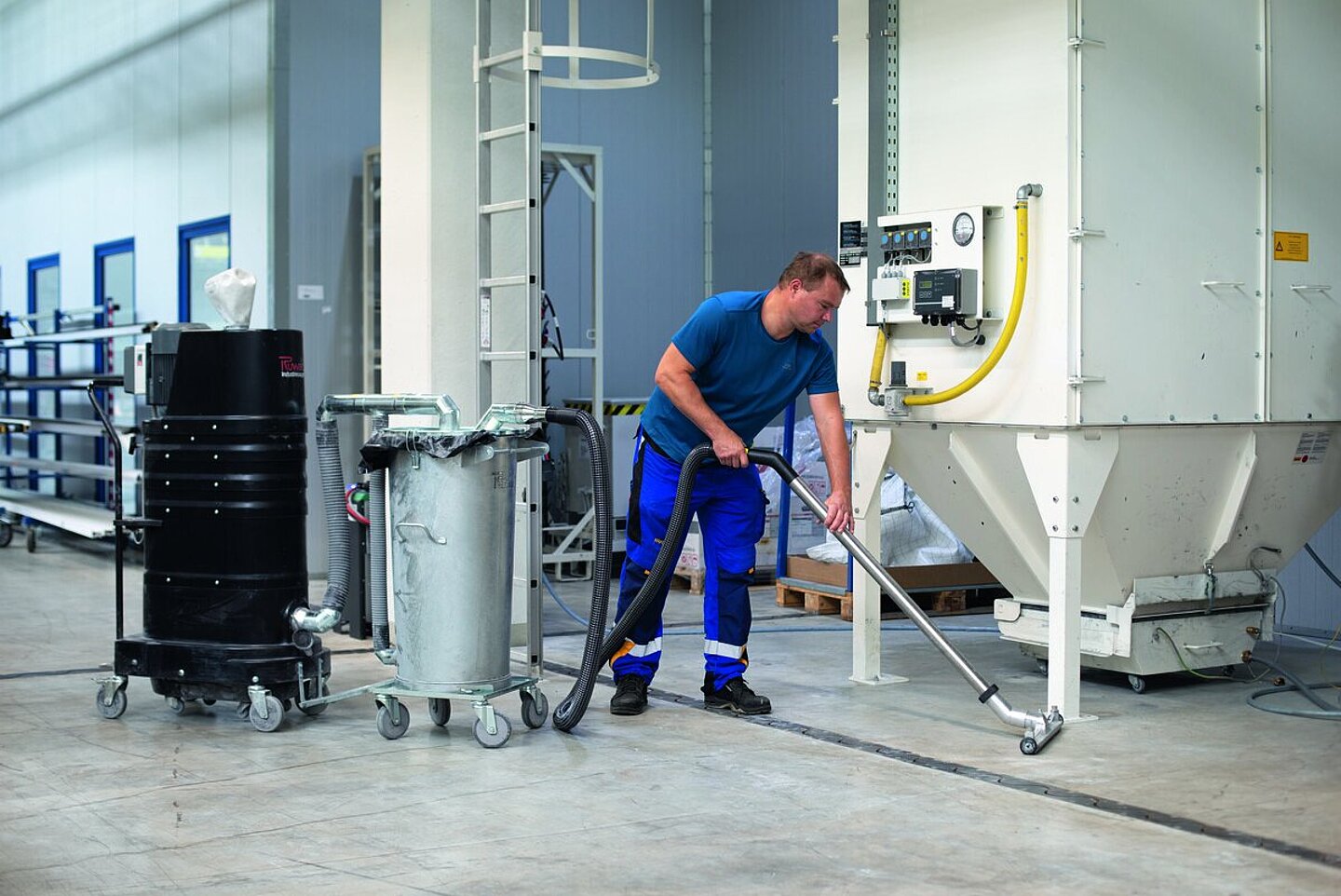1 How heavy is the material to be vacuumed?
It is obvious that metal shavings require a different suction power than plastic granulate or fluff from textile processing. The specific weight therefore determines the performance of the vacuum cleaner.
2 Is there a risk of explosion?
The question must also be asked at the very beginning: Is the issue of explosion protection to be considered? All Ruwac vacuum cleaners are available in both dust and gas explosion-proof versions.
3. dangerous goods or not?
Is the suction material hazardous to health or the environment? The answer to this question determines which of the three standardised filter classes is used.
L is the best choice for non-critical dusts. Dusts that are hazardous to health are retained with class M filters, while category H filters are used for highly toxic or highly carcinogenic substances (e.g. asbestos or dusts in pharmaceutical production).
4 How much suction material?
Is the suction material present in homeopathic doses or in large quantities? This determines the size and, if necessary, the type of disposal system (see points 6 and 7).
5. continuous or intermittent operation?
An AC vacuum cleaner is usually ideal for classic operational cleaning after the shift or as required. If the cleaning processes take an hour or longer, the user should consider a "continuous runner" with three-phase drive. As a third option, Ruwac offers vacuum cleaners with direct-driven side channel blowers, which are also more suitable for continuous operation.
6 With or without pre-separator?
What is often ignored in practice (or when inadequate advice is given) is the question: Does a pre-separator bring advantages? This is always the case, for example, when large quantities of vacuumed material need to be sucked up. As the pre-separators are just as mobile as the actual vacuum cleaners, they can be used just as flexibly - and the user benefits from having to empty the collection container less often
7. collection container: tub, bag or filter bag?
There is a wide choice of collection containers, which can be narrowed down by a few parameters - including the amount of vacuumed material and the health risk. With most compact or industrial vacuum cleaners, the vacuumed material falls into a tray under the filter. The tray can be lined with a foil bag, a dust filter bag system or a disposal container, for example. Rollable containers can be useful for heavy items to be vacuumed. There are also systems that prevent the operator from coming into contact with the vacuumed material.
8 Disposal or recycling?
Increasingly, the circular economy is a factor when selecting a vacuum cleaner. If the suction material (e.g. plastic granulate or powder coating) is fed back into the process, this has an influence on the configuration of the vacuum cleaner, in particular on the choice of collection container.
9. generalist or specialist?
Depending on the application profile of the vacuum cleaner, it may be better not to use the modular basic programme, but to select a special vacuum cleaner that has been designed for a specific application. Examples include the extraction of swarf, the suction of large quantities of light materials and the separation of solid and liquid suction material.
10 Which accessories?
Cleverly selected accessories (brushes, nozzles, hand tubes, mouthpieces...) can further increase the versatility of the vacuum cleaner and ensure that the production or working environment is clean and free of residues. Especially for cleaning machines, there are many options that make vacuuming easier. It's worth taking a look at the accessories programme (link)!
Link: https://www.ruwac.de/produkte/zubehoer
Conclusion: The application decides, advice helps
This brief overview shows: When selecting "normal" industrial vacuum cleaners for general industrial cleaning, the user has many options. The recommendation from Ruwac's point of view is: It is better not to just buy "off the shelf" or from the (online) catalogue, but to choose carefully and ideally also take advantage of the non-binding advice of the Ruwac field service. Then there is a very high probability that the vacuum cleaner will fulfil its (always individual) task in the best possible way in the long term. The short time required for a customised configuration is time well spent!
